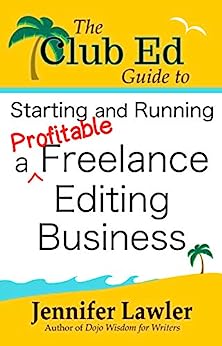Solving a Common Coaching Problem
In my inbox:
“I’ve coached a first time writer from outline to first draft completion. Along the way, I explained concepts like show vs. tell and point of view. Last month, I helped him to draft questions to solicit objective feedback about his story and recommended some beta readers. Now he has lots of feedback and doesn’t know what to do next. I suggested a process of evaluating the feedback to see what he agrees with and what he doesn’t. I also highlighted for him where there was consensus and which one-off remarks he may want to ignore. He still seems uncertain of how to proceed. And now I’ve run out of ideas for how to say the same thing a different way. Is there something else he should do next? What do you do with clients who struggle to implement your suggestions?”
This is a tough one because you’ve done all the things I would suggest, including taking the step of reviewing the feedback yourself and highlighting the areas of consensus and indicating which one-off remarks might safely be deleted.
I don’t know how many betas he had but I typically suggest no more than two or three, as this type of overwhelm can often result, so you may just want to consider that going forward. Doesn’t help at the moment, but just something to keep in mind.
Part of this process is going to be about him deciding how much he wants to invest in this one project. There is also the emotional blow of his thinking that his work was closer to publishable quality than it is (EXTREMELY common overconfidence among beginners). That process is not something we can actively participate in, except to support.
What you might suggest is that he check in with you in a few weeks. Often for beginning writers the best thing they can do once they’ve completed a manuscript, gotten feedback, and seen how much work it will be to revise is to begin the next project, using what they’ve learned to avoid making the same mistakes in the new project.
I might suggest that he table any decisions about the first project and begin the next, and if that one catches fire it will be easier for him to decide to forget about the first one.
I also wonder if you can give him one element to work on in one revision pass, something that could make a big difference? For ex, “Look, why not just straighten out the plot problems and see where that gets you?” or “Let’s talk about how to simplify the backstory and go from there.” Baby steps.
Join the Club!
New to story editing? Begin at the beginning.


